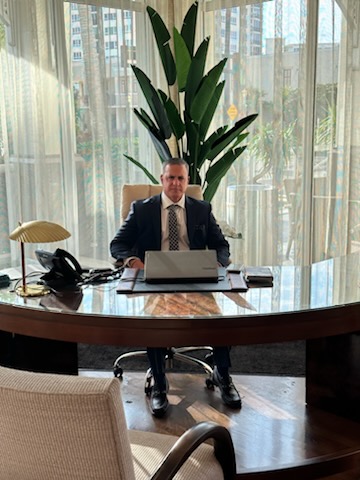Hi, Alec here. As someone who has been through the wringer with my white-collar indictment, I want to talk about responsibility because it is a lot more than just admitting guilt. Do you take responsibility for your actions? Ask yourself these seven questions to find out.
Who are the victims of my white collar crime?
White-collar crimes may seem victimless, but the reality is very much the opposite. In every crime, there are victims. Maybe it’s the investors who lost their life savings, or the front-line employees who lost their jobs, or the customers who lost their trust. Acknowledging these victims is never easy because no one wants to be the cause of pain and suffering. Still, it is necessary to understand the gravity of your actions.
What role did I play in this crime?
It’s easy to deflect blame and say others are responsible for what happened. But it’s time to face the uncomfortable truth: Your decisions…. Your actions…. Your willingness directly contributed to the offense in some way. I know this is difficult to hear, but you would not be on trial if it wasn’t for something you did. Accepting this is the first step to finding genuine accountability.
How have my actions impacted the lives of others?
During my own indictment, I remember the first time I saw how my actions had rippled out. They had also impacted my co-workers, my friends, my wife, and even my young daughter. This realization was one of the harshest to admit. Yet, it was only when I saw the full extent of the damage I had caused that I fully understood the scope of what I had done.
How has my white collar crime affected the community I live in?
Every community is built on trust and integrity, and a white-collar crime shakes its very foundation. Your actions may appear limited, but they also lead to mistrust and skepticism outside the specifics of the case.
How did I get involved in this offense?
You need to take a magnifying glass to your past to answer this question. Maybe it started with small compromises and rationalizations that, over time, led to bigger unethical decisions that became too easy to justify. Studying this progression can help you see just how responsible you are for the fallout.
What did I think when I made decisions and acted in ways that exposed me to these charges?
When I examined my questionable decisions, I saw I was driven by a toxic mix of ambition and a misguided belief that I wouldn’t get caught. I convinced myself that the ends justified the means. This self-delusion masked the ethical implications of my actions and kept me going. What thought patterns affected your judgment? You can only change your future behavior when you can identify the destructive ones.
What steps can I take today to reconcile with society and make things right?
Taking responsibility means taking action. In your case, it might mean cooperating with authorities or compensating the victims as much as possible. For others it may be engaging in community service. Regardless of the particulars, it involves taking meaningful strides to being a positive contributor and ensuring you never make the same ill-advised decisions again.
Final Thoughts
Taking responsibility for a white-collar crime is a lot more than saying, “I made a mistake.” It comprises of much more, such as confronting painful truths and delving deep. These seven questions guided me through understanding my accountability and rebuilding my life with integrity. By asking yourself these questions, you can begin your own path toward redemption.
Stay strong,
Alec
P.S. If you want to learn more about how White Collar Advice can help you, call me at 704-654-1604!

